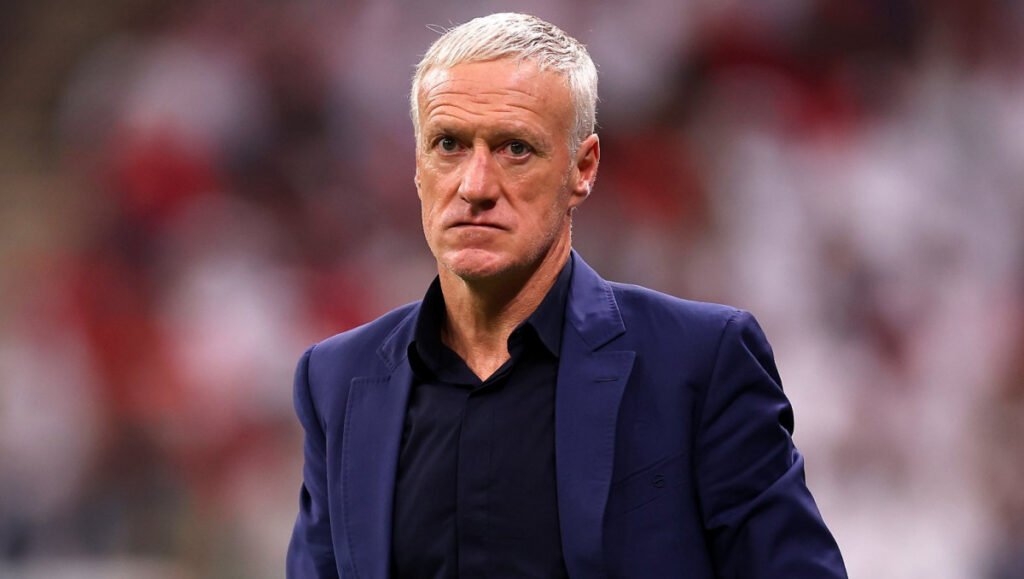Future of French football: Didier Deschamps to Depart from French National Team Post-2026 World Cup
Будущее французского футбола: Дидье Дешам уйдет с поста главного тренера сборной Франции после Чемпионата мира 2026 года. Это значимое событие в истории французской национальной команды, учитывая роль Дешама во время Чемпионата мира 2018 года, где он тренировал сборную Франции. : Didier Deschamp Journey with the French National Team
Didier Deschamps took the helm of the French national team in 2012, marking the beginning of a transformative era in French football. His appointment followed a challenging post-2010 period and ushered in a new age of success for the team. Under Deschamps’ leadership, the French national team has enjoyed an impressive trajectory, most notably clinching the FIFA World Cup in 2018. This victory was not only a testament to Deschamps’ tactical acumen but also showcased his ability to unify a diverse group of talented players.
Deschamps adopted a pragmatic coaching style that emphasized strong defensive organization while allowing the team to showcase their attacking flair. This balance proved effective throughout international competitions, including the UEFA Euro 2016, where France reached the finals, ultimately finishing as runners-up. The 2018 World Cup marked the pinnacle of Deschamps’ tenure, as he led the French national team to glory in Russia, solidifying his status as a national hero.
One of Deschamps’ significant achievements has been his knack for nurturing young talent while simultaneously leveraging the experience of seasoned players. Stars such as Kylian Mbappé, Antoine Griezmann, and N’Golo Kanté flourished under his guidance, contributing substantially to the squad’s dynamic. Deschamps’ ability to adapt his strategies to maximize the strengths of individual players has been crucial, fostering a cooperative atmosphere where every team member feels valued.
Furthermore, Deschamps has had a lasting impact on French football beyond just match results; his tenure has been characterized by resilience, determination, and an enduring commitment to excellence. As he prepares to depart after the 2026 World Cup, it is evident that Didier Deschamps will leave an indelible mark on the French national team and its future endeavors on the world stage.
Announcement of Departure: What Led to Deschamp Decision?
Didier Deschamps’ announcement to leave the French national team following the 2026 World Cup has sparked significant discussion among fans, analysts, and former players alike. The decision is rooted in several factors that reflect both personal reflections and the broader landscape of international football. Managing national teams, particularly one with the stature of the French national team, comes with immense expectations and pressures, which Deschamps has navigated with varying degrees of success over the years.
One factor influencing Deschamps’ decision is the natural evolution of coaching tenures in football. With an impressive track record, including leading the French national team to victory in the 2018 World Cup, Deschamps has consistently faced scrutiny, requiring him to adapt and implement strategies that align with both team capabilities and the competitive landscape. Analysts suggest that after eight years at the helm, the challenges of sustaining high performance may have played a role in Deschamps’ reflections regarding his future with the French national team.
Furthermore, Deschamps has openly expressed the toll that international management takes on personal life and well-being. Former players have noted the unique stress associated with leading a national squad, especially one filled with star players who often have differing aspirations. This element cannot be overlooked, as the pressure to replicate or surpass previous achievements weighs heavily on a coach’s psyche.
Lastly, conversations with the French football federation undoubtedly contributed to his final decision. The dynamics within the organization and alignment on strategic direction for the team’s future beyond the 2026 World Cup can lead to divergent paths. Observers emphasize that this decision reflects both Deschamps’ desire for personal growth and the need for new perspectives that may emerge after his tenure ends.
The Future of French Football: Who Will Succeed Deschamp?
As Didier Deschamps prepares to step down as the head coach of the French national team following the 2026 World Cup, the conversation has turned to potential successors who might continue France’s legacy in international football. The impact that Deschamps has had on the team since taking over in 2012 is undeniable; under his leadership, the French team has clinched a World Cup title in 2018 and reached the final in 2022. Therefore, any successor will face substantial expectations to uphold France’s status as a footballing powerhouse.
Several names are emerging as strong candidates to take the reins of the French national team. One of the leading contenders is Zinedine Zidane, a former player and coach who has achieved remarkable success with Real Madrid. Zidane’s intimate knowledge of the French footballing culture, combined with his tactical acumen, makes him a favorite among fans and pundits alike. Another prominent name is Louis Saha, a former international player who has recently started making waves in coaching circles. Saha’s understanding of player dynamics and his innovative approach could bring a new perspective to the squad.
Additionally, Didier Deschamps’ assistant coach, Guy Stephan, is often mentioned as a potential successor. Having worked closely with Deschamps over the years, he possesses valuable insights into the team’s strategies and player management. However, the new coach will face several challenges, including the integration of young talents from France’s successful youth development programs into a competitive senior squad. The ongoing evolution of football tactics means that keeping up with modern footballing trends will be essential for maintaining and enhancing the French national team’s performance on the global stage.
Legacy and Gratitude: Fans Reflect on Deschamp Impact
As Didier Deschamps prepares to conclude his tenure as the head coach of the French national team following the 2026 World Cup, fans and players alike are taking a moment to reflect on the profound impact he has had on French football. His leadership style, tactical acumen, and resilience have shaped not only the team’s performance but also the footballing culture in France.
One of the most celebrated achievements of Deschamps’ career was leading the French national team to victory in the 2018 World Cup. His strategic decisions and ability to foster teamwork were pivotal in securing France’s second World Cup title. Many former players, including Antoine Griezmann and Kylian Mbappé, have expressed their gratitude for Deschamps’ mentorship, attributing their personal and professional growth to his influence. Griezmann stated, “Didier has always believed in me, and that belief pushed me to achieve greatness on the pitch.”
The response from fans has been overwhelmingly positive, as social media platforms are flooded with heartfelt tributes celebrating Deschamps’ incredible journey. Hashtags like #MerciDidier and #DeschampsForever have gained traction, symbolizing the immense respect he commands. Supporters recount their favorite moments from matches under his guidance, recalling that unity and determination were hallmarks of his leadership style.
Furthermore, Deschamps has not only inspired the current generation of players but also future prospects in the sport. His contributions to youth development programs and emphasis on nurturing talent will likely resonate for years to come, nurturing a new wave of footballers eager to emulate his success. As the community reflects on these contributions, there is a collective recognition that Didier Deschamps’ legacy will be felt long after he steps down from his role with the French national team.












